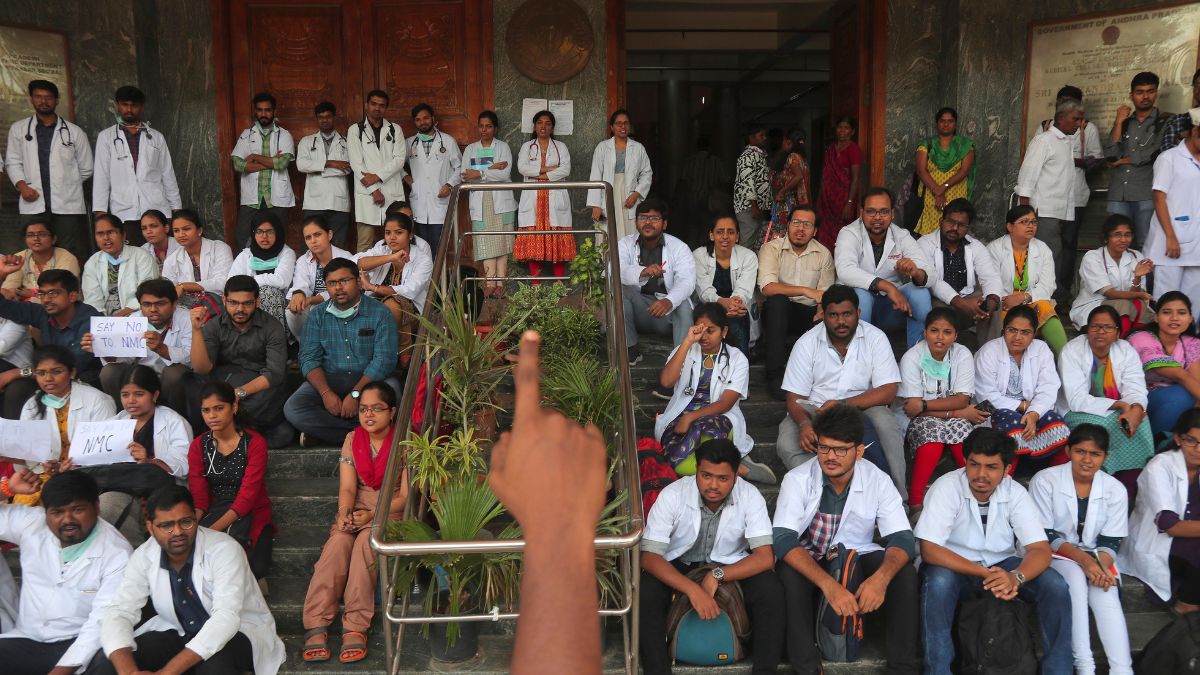Lesbianism and sodomy have been brought back by the National Medical Commission (NMC), the country’s apex medical education regulator, under the category of unnatural sexual offences in the forensic medicine and toxicology curriculum for undergraduate medical students. The revised curriculum also has other controversial changes.
Topics reintroduced in the syllabus include the importance of the hymen, defining virginity and defloration, its legitimacy and medico-legal significance. These subjects were scrapped and a new module was brought in 2022 on the orders of the Madras High Court.
What are the other amendments made to the medical curriculum? Let’s take a look.
New medical curriculum for undergrads
The revised curriculum talks about topics such as sexual perversions, fetishism, transvestism, voyeurism, sadism, necrophagia, masochism, exhibitionism, frotteurism, and necrophilia, reported PTI.
Adultery and offences like incest and bestiality are also listed under unnatural sexual offences.
The distinction between consensual sex between queer people has been dropped, as per an Indian Express report.
The amended syllabus has also recalled seven-hour training on disability. It no longer consists of topics on disability in its module on medical ethics, as per the newspaper report.
The module on psychiatry has also been updated. It does not mention in detail topics such as the difference between sex and gender identity and common myths and misconceptions. The module also does not say that students should be educated about “gender identity disorders”.
Impact Shorts
More ShortsThe amended curriculum mentioned under forensic medicine and toxicology aims to teach students about the provisions of Bharatiya Nagarika Suraksha Sanhita (BNSS), Bharatiya Nyay Sanhita (BNS), Bharatiya Sakshya Adhiniyam (BSA), along with “Protection of Children from Sexual Offences Act (POCSO), Civil and Criminal Cases, Inquest (Police Inquest and Magistrate’s Inquest), cognisable and non-cognisable offences”, reported PTI.
Students will be educated about the provisions for rape, injury, and protection of children from sexual offences.
ALSO READ: Kolkata rape-murder case: Why doctors in India are in urgent need for a central protection law
Modifications in curriculum 2022
Indian Express noted that sodomy and lesbianism were removed from unnatural sexual offences in 2022.
Distinctions were also made between sexual fetishes like voyeurism, exhibitionism, or masochism and mental disorders originating from such unusual interests.
The two-finger test for virginity was described as “unscientific, inhuman, and discriminatory”.
The psychiatry module included changes to help students better grasp topics such as sex, gender identity and sexual orientation, the newspaper noted.
Reactions to the revised syllabus
The NMC said in a document that the curriculum should help students understand the “medico-legal framework of medical practice, codes of conduct, medical ethics, professional misconduct and medical negligence.”
“It was time to have a relook at all aspects of the various components in the existing regulations and guidelines, and adapt them to the changing demography, socio-economic context, perceptions, values, advancements in medical education and expectations of stakeholders,” the regulator said in its Competency-Based Medical Education Curriculum (CBME) Guidelines, 2024.
The NMC says the course is framed to develop an “Indian Medical Graduate” (IMG) who has “requisite knowledge, skills, attitudes, values and responsiveness, so that she or he may function appropriately and effectively as a physician of first contact of the community while being globally relevant.”
As per Indian Express, disability rights activists have slammed the new guidelines. In a letter to Union Health Minister JP Nadda, Dr Satendra Singh, disability rights activist, and Dr Sanjay Sharma from the Association of Transgender Health in India wrote, “These competencies should have been integrated longitudinally throughout the curriculum but are conspicuously absent from the 2024 curriculum.”
“We, therefore, appeal to you to use the influence of your high office to correct this wrong which not only directly impacts the interests of persons with disabilities, the transgender and gender-diverse individuals, persons with differences in sexual orientation and persons with differences in sex development, but also damages the image of our nation in the international fora,” it added.
With inputs from agencies
)